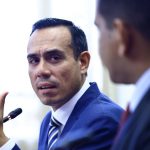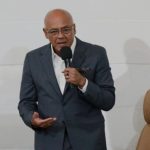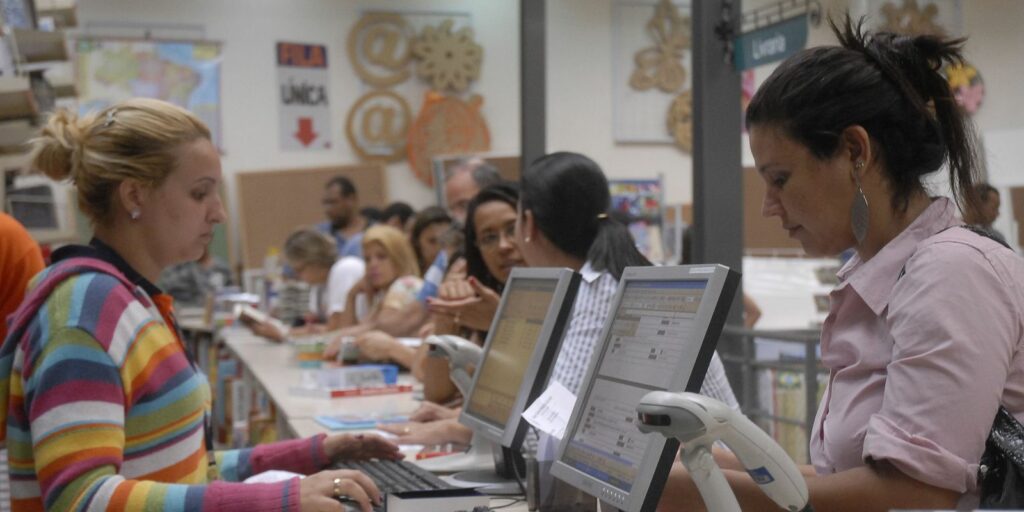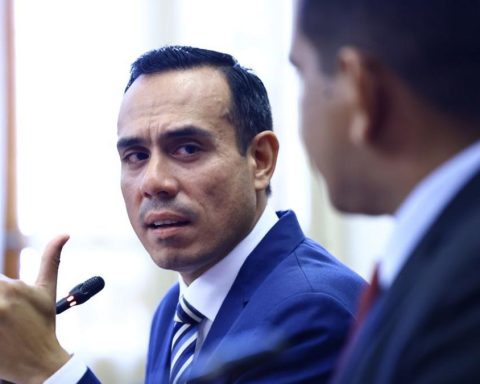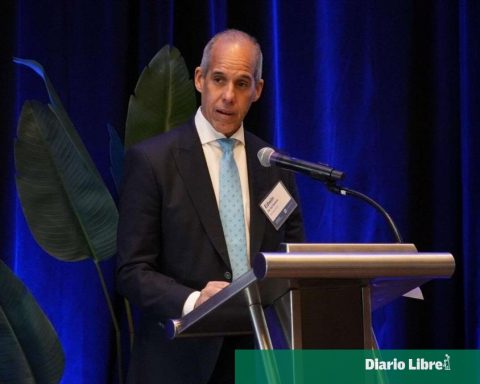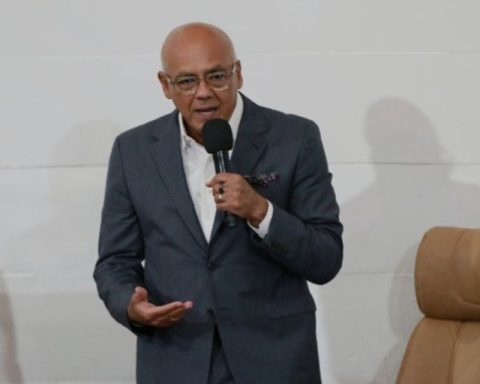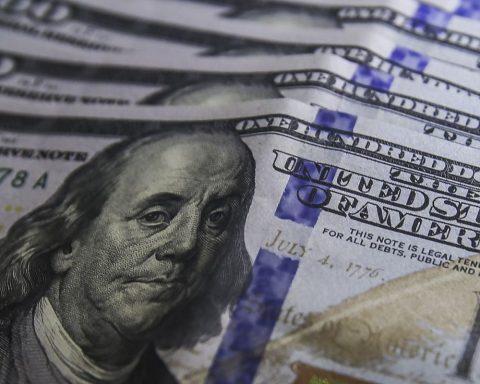November 8, 2022, 13:01 PM
November 8, 2022, 13:01 PM
We all know the impact that worries have on poverty and corruption have in Latin American elections.
But how influential are these two factors in US politics, which comes to a head in the midterm elections this Tuesday, November 8?
To answer this question, it may be helpful to first set how serious is the problem in the united statescompared to what happens in Latin America.
In general, the problems of poverty are of a different magnitude in Latin American countries, compared to what is experienced in the United States.
It is also true that the general perception of institutional corruption is more serious in many of the Latin American countries, compared to what occurs in the North American nation.
But, as several experts tell BBC Mundo, this does not mean that anxiety about poverty and corruption are not influencing also in elections in the United States.

Both are seen as recurring problems that, in many cases, convince Americans to vote one way or the other.
Different orders of magnitude
It is of course difficult to compare poverty in the United States, the most powerful nation on earth, with which it is seen in Latin American countries.
Is not the same be considered poor in the United States than elsewhere.
According to the United States Census Bureau, in that country a family of two adults and two children is classified as poor if the family income does not exceed $26,000 per year. About a 12% of the US population go into that grade.
However, as an example, a Colombian family that earned the same amount of money, equivalent to about 10 million Colombian pesos per month, would be widely considered part of the middle class in that South American nation.
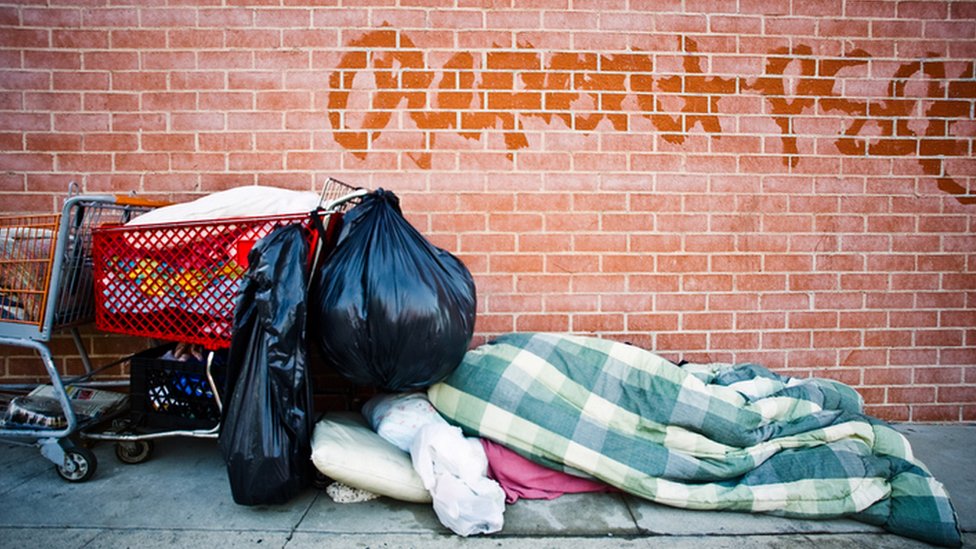
When trying to measure poverty in the United States against that of Latin American countries, the constant changes in the value of their respective currencies, differences in the cost of living, the availability of state aid and other socioeconomic factors mean that the salary amount alone is not the only variable to consider.
The world Bank has attempted to create an index that takes into account some of these differences in cost of living and currency values to estimate what percentage of the population lives on less than $2.15 a day, adjusted for the purchasing power of different currencies.
They thus arrive at an estimate of the number of people facing the difficulties of extreme poverty in each country.
Measured like this, a 1% of the US population is in that condition of absolute poverty.
According to this method, there are fewer extreme poor in Chile, where this vulnerable population is 0.7% of the total.
In contrast, according to the World Bank, in Mexico they reach 3.1%, Guatemala 9%, Colombia 10.8%, Honduras 12.7% and Haiti 29%.
United Nations It has another mechanism, that of the Human Development Index, which, beyond salary, examines how much access the bulk of the population has to material conditions of well-being.
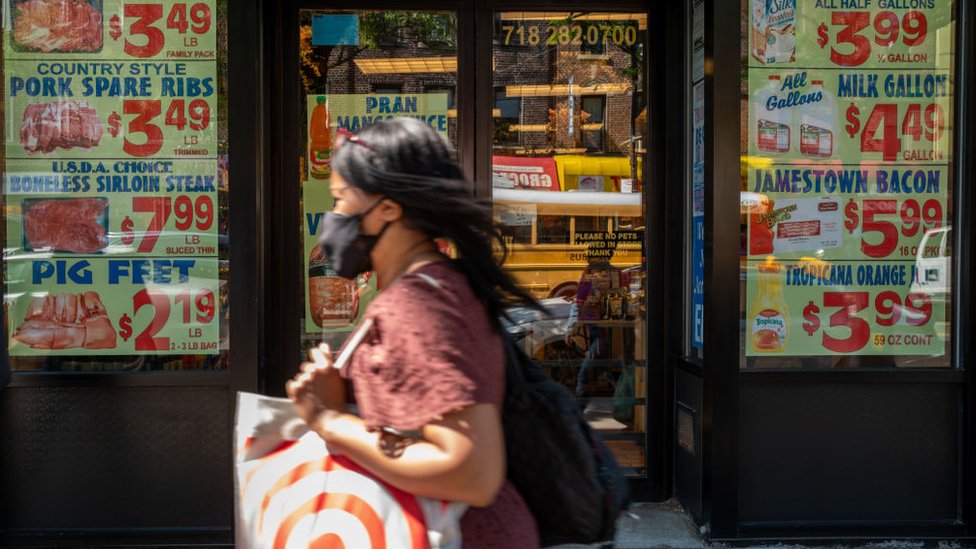
On an index of 0 to 1, where 1 reflects the communities with the highest human development, Chile, with a score of 0.855, is very close to the 0.92 obtained by the United States.
Mexico, Brazil and Colombia obtain 0.75. While Bolivia only reaches 0.6 and Haiti barely reaches 0.53.
Finally, there is the prism of relative poverty and inequality.
In many countries, the political impact of poverty it is magnified by the sense of inequality.
If the poor see the rich as having too much, it may increase their sense of outrage with the system.
The Gini index measures the degree of inequality in a society. The lower the number, the less inequality there is.
According to information from the World Bank, this index reaches 41.5 for the United States. The same index rates Uruguay with 40.2, a society that, in this measurement, is more egalitarian.
On the other hand, the Gini index rises to 48.9 for Brazil, and to 54.2 for Colombia, one of the worst-off countries in the world in that sense.
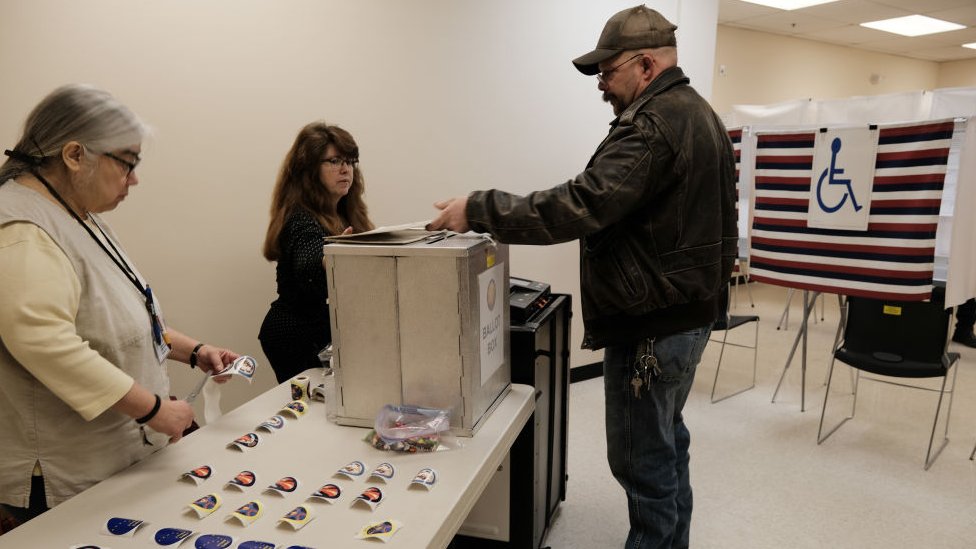
So when making the comparison of poverty and inequality between Latin America and the United States, the first clarification that must be made is: which country in Latin America, a region of enormous internal differences in the results of the fight against poverty.
The effects on US politics
In any case, experts indicate that the american povertyalthough often substantially lower than in Latin America, It has important effects on politics.
So believes Shailly Barnes, policy director at the Kairos Center, a New York-based think tank that seeks solutions to poverty in America.
“The common narrative about the poor in America is that they don’t participate in elections and don’t care about politics. We’ve found that to be untrue. In 2020, a number close to 60 million low-income people voted in the presidential elections”says Barnes in conversation with BBC Mundo.
Barnes uses the example of what happened in the last 2020 elections in the state of Florida to show the relevance of the issue of poverty in the American political world.
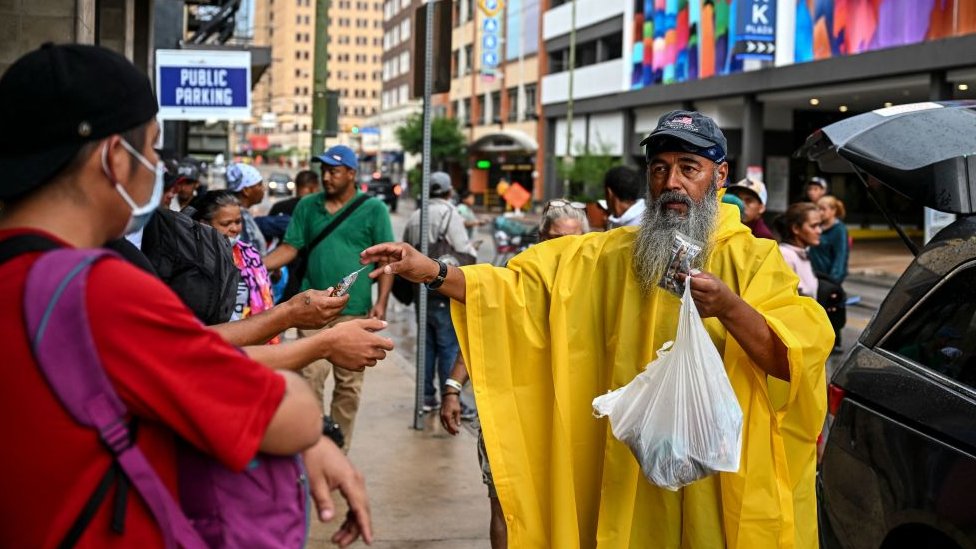
He points out that it was a state won by Republicans, a party whose policies are traditionally associated with more support for big business.
But, Barnes recalls, “that same Florida electorate approved in a referendum a measure that raised the current minimum wage in the state.”
However, the expert is concerned that many times “Our policy does not respond to the needs or constraints of these people.”
He warns that, as in many other countries, the anxiety that concerns about poverty may be generating in the United States feeds other political phenomena such as the populism.
“We’ve seen that in the last decade,” explains Barnes, pointing, for example, to the “use of racist speech” by some politicians in response to an electorate worried about deteriorating levels of material well-being.
concerns about corruption
Aside from poverty, another recurring topic of discussion in contemporary Latin American politics is corruption.
In general, but not always, the measurements on the perception of corruption leave the institutions of the United States better off than those of the Latin American countries.
But no one denies that it is also an extremely topical issue in the politics of the North American country.
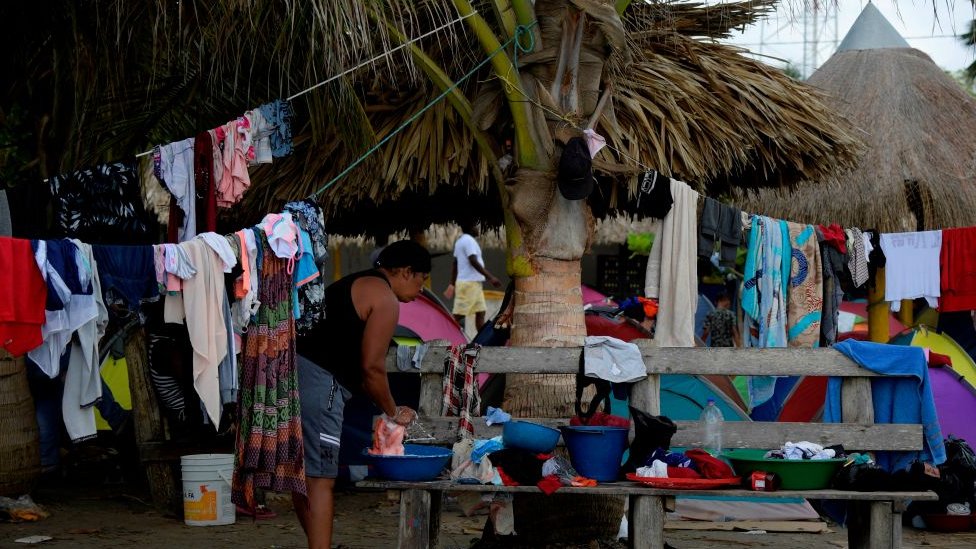
International Transparency is one of the organizations that tries to qualify and compare with an index the public perception about the degree of corruption prevalent in many countries.
The most recent version of the index indicates that Denmark is the nation with the lowest perception of corruption, with a score of 88 out of 100.
The United States reaches position 27, with 67 points, a result that puts it at the same level as Chile, and surpassed by Uruguay, located in position 18 with 73 points.
Instead, Colombia comes out in 87th place with 33 points. Argentina ranks 96th along with Brazil, Guatemala 150th and Venezuela 177th, barely surpassing three countries in this table: Somalia, Syria and South Sudan.
The discussion of corruption, in any case, shakes US politics as much or more than many Latin American countries.
Just remember that one of Donald Trump’s battle cries in his victorious 2016 presidential campaign was his promise to “dry up the swamp”as the then candidate referred to the corruption in Washington, a city created on a swamp.
This year, the discussion has often focused on issues of alleged electoral corruption, Gabriel Sanchez, an expert associated with the Brookings Institute research center in Washington and a professor at the University of New Mexico, tells BBC Mundo.
The controversy surrounding the 2020 presidential elections and Trump’s defeat has marked the perception of the American public about corruption, despite the fact that no evidence of fraud has ever been found in said elections.
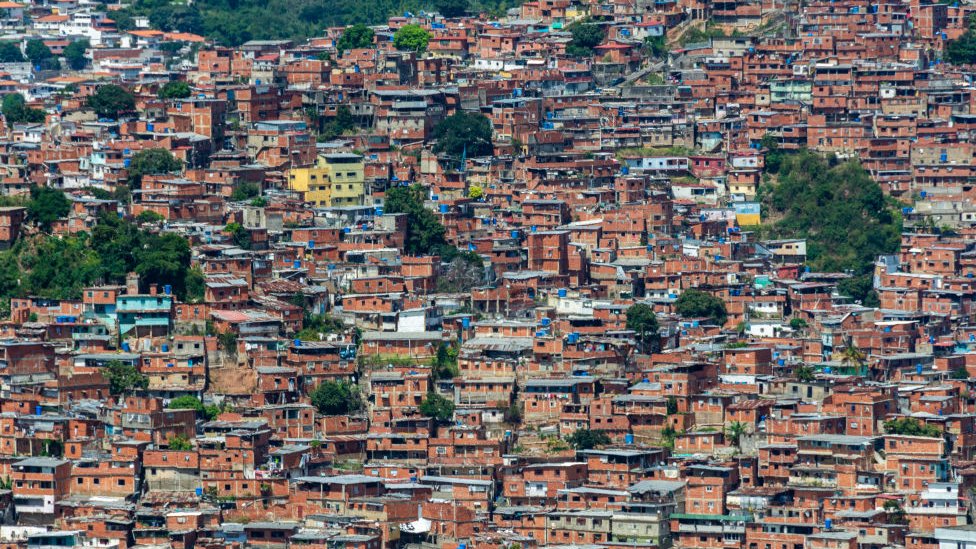
“We are seeing levelsimprecise information cord targeting Latinos this election cycle, primarily to Spanish-speaking Latinos. Much of that content focuses on Trump’s continued assertions about the alleged theft of the 2020 election, which is helping to generate perceptions of corruption among some Latinos,” Sánchez said.
The expert identifies repercussions of this discussion in the mid-term elections this Tuesday.
“It’s evident in places like Arizona, where there are several candidates who have latched on to Trump’s 2020 campaign message on electoral corruption. If another tight election happens now, it could take several days to calculate the results, which could fuel accusations.” of electoral fraud and generate greater concern about corruption.
In an interconnected and interdependent world, political speeches from different parts of the world have become more alike, even between regions as different as the United States and Latin America.
And despite showing such different indicators on issues such as corruption and poverty, citizen outrage around these issues helps explain at least some of the electoral results in both places.
Remember that you can receive notifications from BBC World. Download the new version of our app and activate it so you don’t miss out on our best content.







